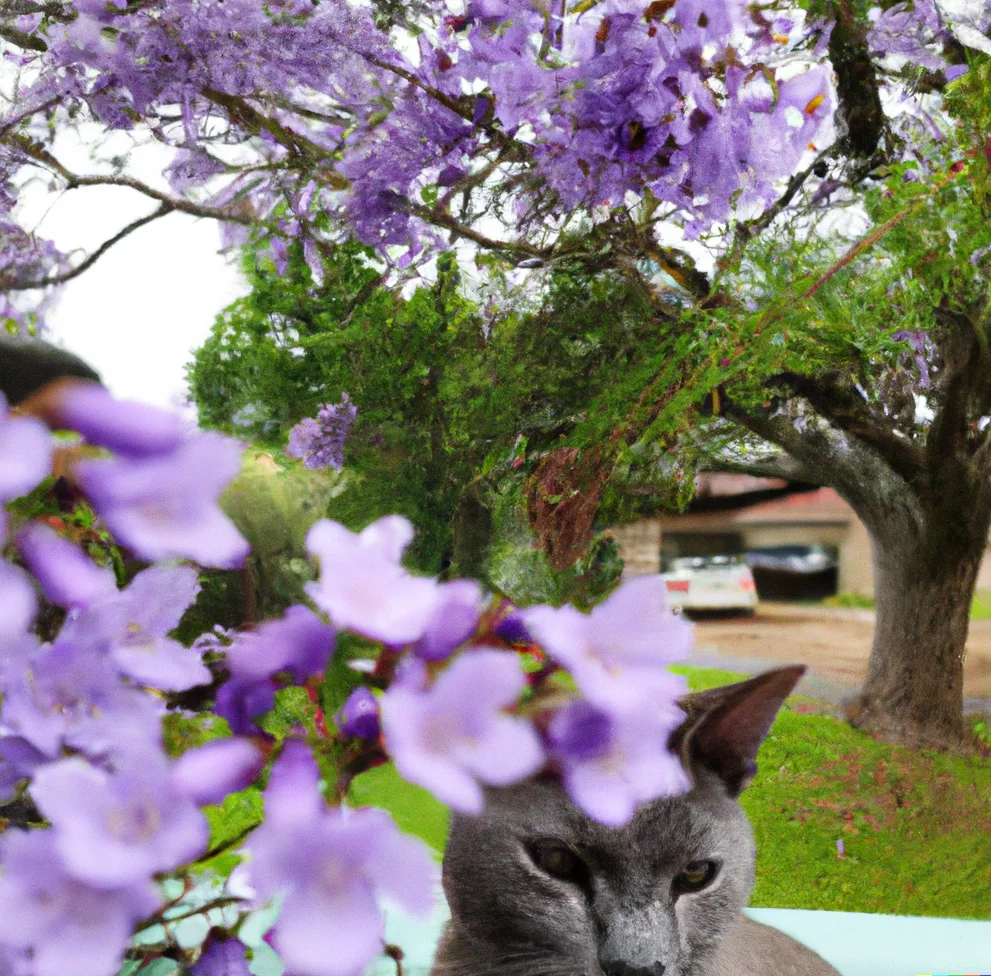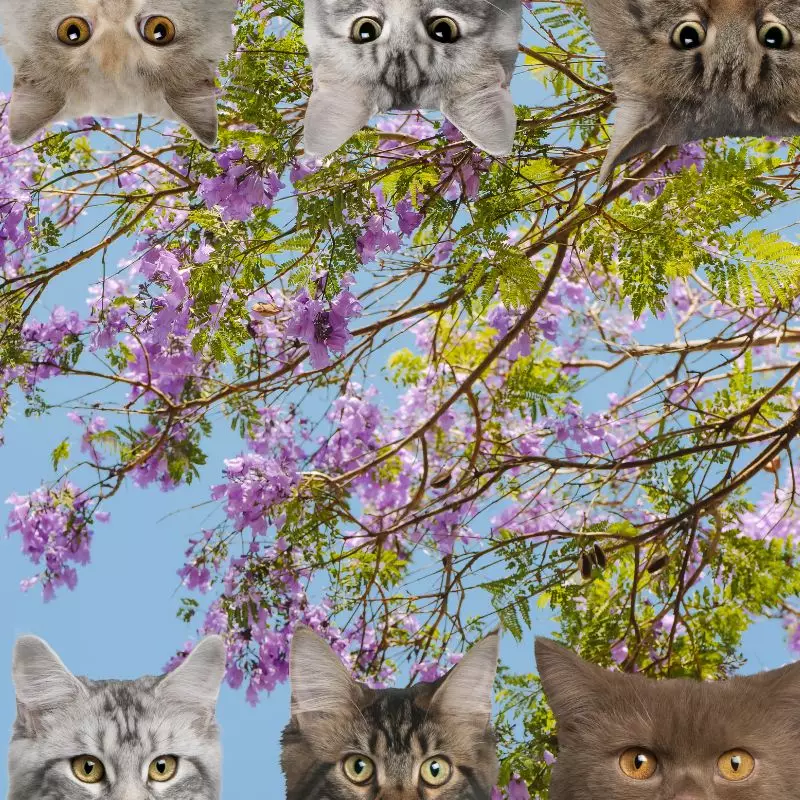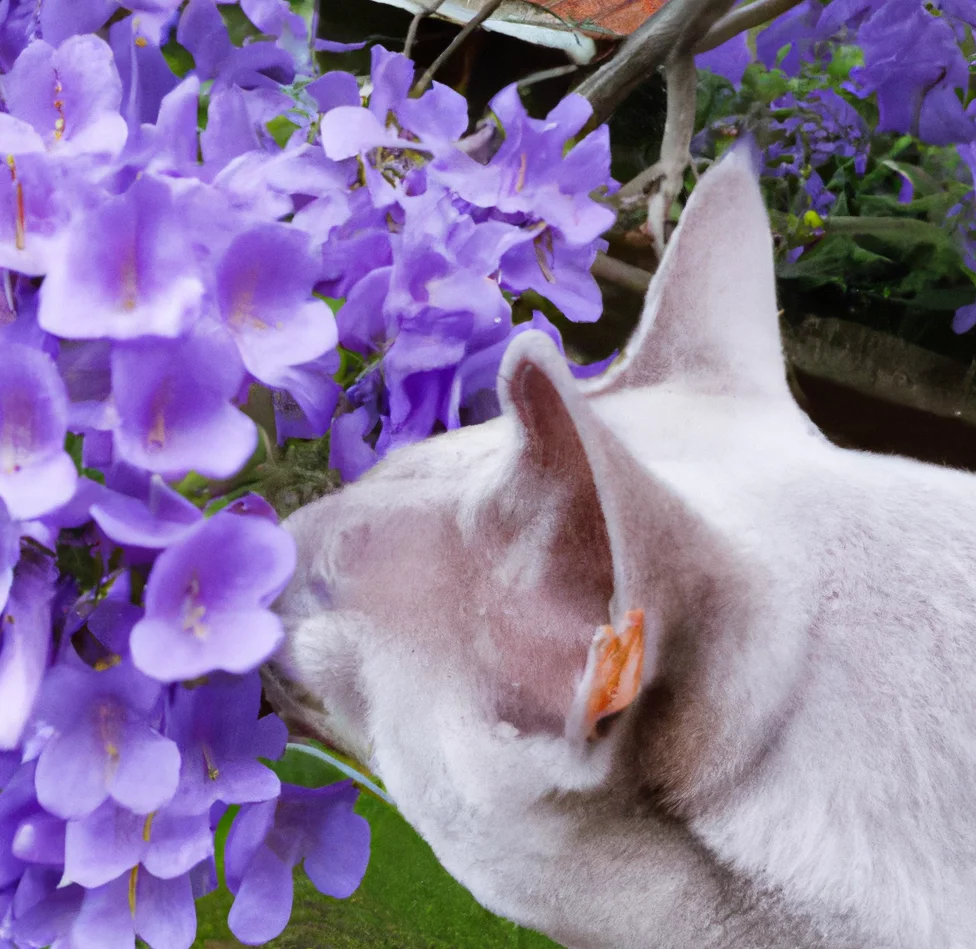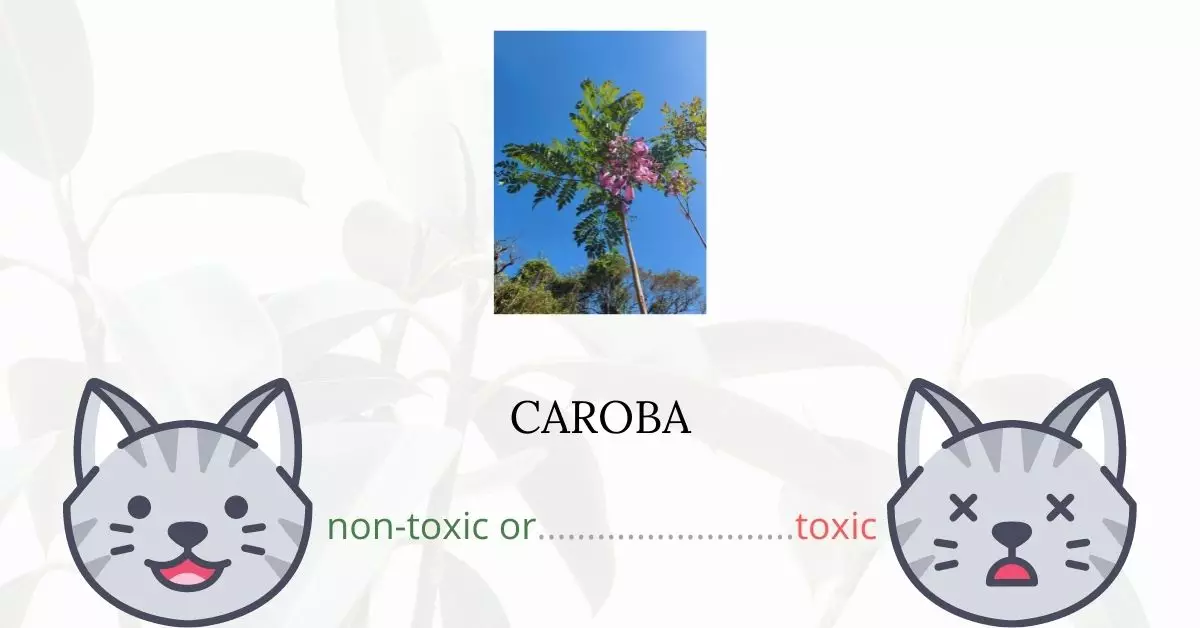Caroba is indeed a non-toxic plant for cats, a statement corroborated by the American Society for the Prevention of Cruelty to Animals (ASPCA) Poison Control Center.
Furthermore, according to extensive research and consultation with a team of experienced Doctors of Veterinary Medicine (DVMs), there are no components found in Caroba that would be harmful to cats, making it also suitable for horses and dogs. This article, enriched by the collaboration with veterinary specialists, strives to offer precise and current information regarding the potential risks of various plants, Caroba included, to cats. Moreover, to ensure the accuracy and reliability of our information, extensive research was conducted utilizing high-authority sources such as ASPCA and PetMD for each plant discussed.
While Caroba is non-harmful, and can be approached by the curious felines prone to nibbling on plants, it is crucial for cat owners to exercise caution. This non-toxicity does not imply that cats can ingest Caroba in large quantities without consequence, as moderation is key in maintaining the well-being of your pet.
Can Cats Eat Caroba?

It will be harmless if your cat comes into touch with a caroba. Your cats can usually munch or lick bits of this plant without harm.
Huge amounts of caroba should be avoided by cats. This is due to cats’ inability to absorb plant components completely, which can cause stomach issues.
Furthermore, cats may be harmed if they consume fertilizers, insecticides, or other plant-based pollutants.
What is Caroba?

Caroba, scientifically known as Jacaranda procera, is also known by several popular names such as Caaroba, Carob Tree, Carobhina, and Bignonia. It belongs to the Bignoniaceae family. With purple-blue flowers, this medicinal plant is endemic to Brazil’s Cerrado area. Caroba can develop to be a 1.5-meter-tall deciduous shrub or a 20-meter-tall tree with a crooked bole 80cm or more in diameter. Caroba grows well in a sunny position with well-drained, rich soil. It is harvested in the wild for local medicinal reasons and is also utilized as a fuel source.
Keeping Cats Away From Caroba

Because cats are unpredictable and territorial, keeping them out of garden areas can be difficult. The first step in keeping cats out of the yard is to remove any waste as well as some soil. Then you can try sprinkling cat repellent in the area and hoping it works, or you can consider placing chicken wire on top of your soil.
You might be wondering how to keep your cat from eating plants. Again, there are no absolutes, but you can try a few things. Cats despise being wet. If you notice cats nibbling on your garden plants, you can spray them with a garden hose or a water pistol to make them aware that they are not welcome around your plants.
Plants to Avoid For Your Cats
If you are a cat owner and unsure if the plants growing in your yard are harmful to your cats, check out this list of toxic plants for cats. You can also check our list of non-toxic plants for cats.





